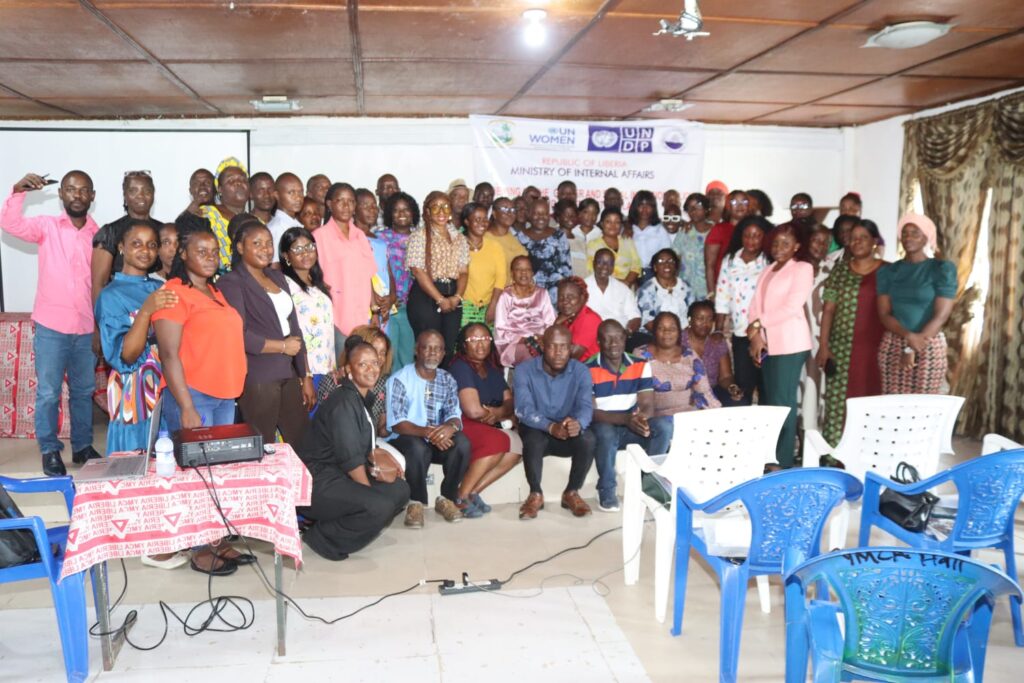MONROVIA, Nov 8, 2024 – The Ministry of Internal Affairs has held a one-day working session on the internal review of its Gender and Social Inclusion (GSI) Policy.
The session, led by the Ministry’s Gender and Social Inclusion Unit, aimed to integrate gender equality into various development policies and frameworks within the Ministry and government at large.
The GSI Policy is designed to enhance women’s participation in significant decision-making roles across government sectors and establish a structured approach to gender equality, equity, and women’s empowerment.
Recognizing the previous gaps in government efforts, the policy intends to rectify systemic disparities, aiming for true gender balance in governance.
There are concerns about the persistent inequalities in public and private places, revealing that women are often relegated to lower professional positions within Ministries and Agencies, while men dominate senior roles.
This imbalance underscores the necessity of the GSI Policy despite existing civil service guidelines meant to promote equality.
The workshop served as a key opportunity to refine, validate, and prepare the policy for its forthcoming official launch.
Over all, the workshop sought to address various challenges women face, including economic empowerment, health issues, leadership opportunities and barriers to political participation.
Supported by the United Nations Development Programme (UNDP) and UN Women, the initiative underscores the importance of gender and social inclusion as pivotal components of sustainable development and peacebuilding.
In his opening remarks, Edward K. Mulbah, Deputy Minister for Research Development Planning, emphasized the need of implementing gender markers in all government projects and budget formulations, urging that women’s voices must be integrated into governance processes.
He highlighted the need for women to unite and support one another for social inclusion and empowerment rather than engage in rivalry.
Minister Mulbah reiterated the commitment of the Ministry to promoting women’s roles in peacebuilding and governance, insisting that a comprehensive system must be enacted across all government bodies to facilitate women’s participation.
Mrs. Cecelia J. Gould, Director of the Gender Social Inclusion Unit, outlined the session’s objective to foster collaboration, share insights, and strengthen commitment to gender equality and social inclusion.
“We are here to create and discuss practical pathways to address barriers that hinder the full participation of women and marginalized groups,” she stated, emphasizing that the success of the policy lies in the active engagement of all participants.
Throughout the day, attendees were invited to contribute through constructive critiques and feedback on the GSI policy draft, ensuring that it not only serves as a guideline but also leads to sustainable change in the Ministry’s practices.
“We must seize this opportunity to make the Gender and Social Inclusion Policy a catalyst for positive change,” Mrs. Gould concluded, reinforcing the collective responsibility to uplift all communities through inclusive governance.




2 Comments
I don’t think the title of your article matches the content lol. Just kidding, mainly because I had some doubts after reading the article.
Your point of view caught my eye and was very interesting. Thanks. I have a question for you.